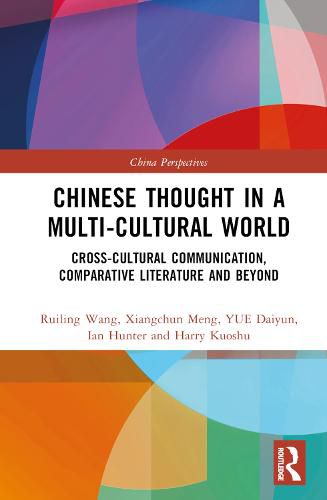Readings Newsletter
Become a Readings Member to make your shopping experience even easier.
Sign in or sign up for free!
You’re not far away from qualifying for FREE standard shipping within Australia
You’ve qualified for FREE standard shipping within Australia
The cart is loading…






Reflecting on the clash of civilizations as its point of departure, this book is based on a series of sixteen of the author’s interconnected, thematically focused lectures and calls for new perspectives to resist imperialistic homogeneity.
Situated within a neo-humanist context, the book applies interactive cognition from an Asian perspective within which China can be perceived as an essential other, making it highly relevant in the quest for global solutions to the many grave issues facing mankind today. The author critiques American, European, and Chinese points of view; highlighting the significance of difference and the necessity of dialogue; before ultimately, rethinking the nature of world literature and putting forward interactive cognition as a means of reconciliation between cultures. Chinese culture, as a frame of reference endowed with traditions of harmony without homogeneity , may help to alleviate global cultural confrontation and even reconstruct the understanding of human civilization.
The book will be essential reading for scholars and students of Comparative Literature, Chinese Studies, and all those who are interested in cross-cultural communication and Chinese culture in general.
$9.00 standard shipping within Australia
FREE standard shipping within Australia for orders over $100.00
Express & International shipping calculated at checkout
Reflecting on the clash of civilizations as its point of departure, this book is based on a series of sixteen of the author’s interconnected, thematically focused lectures and calls for new perspectives to resist imperialistic homogeneity.
Situated within a neo-humanist context, the book applies interactive cognition from an Asian perspective within which China can be perceived as an essential other, making it highly relevant in the quest for global solutions to the many grave issues facing mankind today. The author critiques American, European, and Chinese points of view; highlighting the significance of difference and the necessity of dialogue; before ultimately, rethinking the nature of world literature and putting forward interactive cognition as a means of reconciliation between cultures. Chinese culture, as a frame of reference endowed with traditions of harmony without homogeneity , may help to alleviate global cultural confrontation and even reconstruct the understanding of human civilization.
The book will be essential reading for scholars and students of Comparative Literature, Chinese Studies, and all those who are interested in cross-cultural communication and Chinese culture in general.